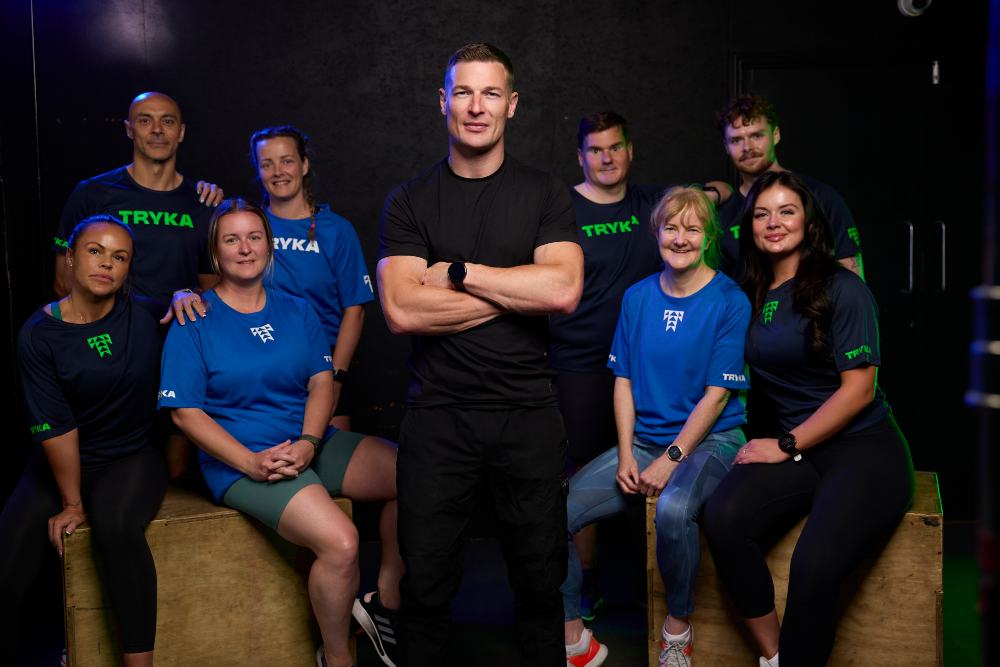UCD Professional Academy CEO John Delves explains why live, modular upskilling is vital for career survival and national competitiveness in the AI-driven future.
As Ireland grapples with a paradox of full employment alongside critical skills shortages, one university subsidiary is pioneering a new approach to lifelong learning that could transform how the country competes globally
As CEO of UCD Professional Academy, John Delves oversees a business that has trained more than 40,000 professionals in just five years, yet he argues this represents merely the beginning of what needs to be a fundamental shift in how Irish workers acquire skills.
“You have a human at the other end interacting with you. We passionately believe that live element is critical – it creates connection”
“We’re the most highly educated workforce not just in Europe, but in the world,” Delves explains, citing statistics showing 52% of Irish people aged 25-64 hold bachelor’s degrees or higher, compared to 46% in Switzerland, the next closest nation. “However, where we’re really struggling is in our lifelong learning participation.”
The statistics are stark: only 14% of Ireland’s workforce participates in lifelong learning annually, far behind countries like Sweden and Finland at 25-39%, and well short of the EU’s 60% target for 2030. This gap has become critical as Ireland faces full employment while 41% of companies struggle to find workers with the required skills.
Journey to education innovator
“If Ireland wants to compete internationally, we have to invest in skills and upskilling”
Delves’ journey to heading Ireland’s largest professional development provider reflects the kind of career pivots his organisation now helps others navigate. “I didn’t have enough points to get into UCD when I was younger, so I had to find another way in,” he admits with characteristic directness.
After two decades abroad working in telecoms – including 11 years with Denis O’Brien’s Digicel across six countries from Vanuatu to Jamaica – Delves returned to Ireland seven years ago. His last role was with Magnet+, which went through a successful sale process before UCD approached him to develop its Professional Academy.
“I thought they’d called the wrong person, given my lack of education background,” he recalls. “But they were looking for someone who could really develop what the academy had achieved and help it grow.”
Short-form upskilling key to long game
UCD Professional Academy, established just over five years ago as a wholly owned subsidiary of the university, represents a different model for higher education engagement with industry. The academy focuses on what Delves calls “short-form upskilling.”
The core offering consists of professional academy diplomas – 36-hour courses spread over 12 weeks, with over 40 different programs available. However, recognising that not everyone can commit to such extensive training, the Academy recently launched “skill sprints” – six-hour courses delivered over three weeks.
“The big barriers tend to be time and affordability,” Delves explains. “We’ve got over 50 skill sprints and we’re going to double that over the next 12 months. They’re stackable, so you can create your own learning paths.”
This modular approach reflects broader changes in how professionals approach career development. Unlike traditional degree programs that require years of commitment, these courses allow workers to acquire specific capabilities quickly while maintaining their current roles.
The AI opportunity and challenge
Perhaps nowhere is the need for rapid upskilling more evident than in artificial intelligence, which has become the academy’s most popular subject area. “It would have been number three maybe a year ago,” Delves notes. “So people are embracing it, and we’re now developing it into other areas.”
The academy has moved beyond theoretical AI courses to practical applications, including programs focused on Microsoft Copilot integration with everyday business tools like Excel and PowerPoint. This shift from theory to application reflects a broader philosophy about making technology accessible to working professionals.
“I can see definitely some disruption in more mundane tasks, which people probably never had much joy doing anyway,” Delves argues. “It frees you up to do more of the human parts of our jobs. I see AI very much as a partner rather than replacement technology.”
This perspective counters widespread concerns about AI displacing workers, instead positioning it as a tool for productivity enhancement that requires human guidance and oversight.
The corporate responsibility gap
While individual motivation for skill development remains strong – with 60% of the Academy’s learners self-funding their courses – Delves argues that Irish businesses need to take a more proactive role in workforce development.
“PwC’s 2024 Irish workforce hopes and fears survey shows that 73% of employees say skill learning opportunities influence their decisions to stay or switch jobs,” he explains. “Particularly with younger people in their first 10 years of career, they’re very interested in how you’ll invest in and develop them.”
The business case extends beyond retention. In an economy at full employment, investing in existing staff often proves more effective than competing for scarce talent. Yet Delves notes that 45% of Irish businesses aren’t investing in employee training – a figure he describes as “crazy” given current market conditions.
“If you think about it, what would be reasonable is probably 2% – with an average salary of €50,000, that’s €1,000 a year investment in your employees,” he suggests.
Live learning in a digital age
One key differentiator of UCD Professional Academy’s approach is its emphasis on live, interactive learning rather than pre-recorded content. With 4,000 active learners monthly and average class sizes of 20, the Academy maintains a personal touch despite operating at scale.
“The real differentiator versus LinkedIn Learning, Coursera, or Udemy is that our courses are delivered live,” Delves explains. “You have a human at the other end interacting with you. We passionately believe that live element is critical – it creates connection.”
This approach reflects research showing higher engagement and completion rates for interactive learning compared to self-paced video content. The academy’s subject matter experts are practicing professionals, bringing current industry experience to their teaching.
“All our courses are developed for the Irish market and EU context,” Delves adds. “Most of our experts are actively working, so they bring practical, lived experience to the delivery.”
Scaling ambitions
With approximately 2,000 corporate customers currently, Delves has ambitious growth targets. The academy aims to double its business over the next five years, expanding from its current mix of professional diplomas, skill sprints, and custom programs for major clients.
This expansion reflects both market demand and national necessity. If Ireland is to achieve the EU’s lifelong learning participation target, current levels need to increase fourfold. The academy positions itself as a key component of this transformation, offering locally relevant, accessible professional development.
The approach has created networking effects beyond the classroom. “People on courses often network and support each other long after the course ends,” Delves notes. “It’s a modern networking opportunity with participants across diverse industries.”
The competitive imperative
This symbiotic relationship between individual career advancement and corporate competitiveness underpins the academy’s growth. As technology continues to reshape work across sectors, the ability to rapidly acquire new capabilities becomes a critical advantage for both workers and employers.
The success of UCD Professional Academy suggests a model for how traditional educational institutions can adapt to serve working professionals’ evolving needs. By focusing on accessibility, practical application, and live interaction, it addresses barriers that have historically limited participation in lifelong learning.
For Ireland, the challenge now lies in scaling such approaches across the economy. With the Academy planning to double its capacity and expand its course offerings, it represents one response to the broader question of how nations can maintain competitive advantage in an era of rapid technological change.
Ultimately, Delves frames workforce development as an economic necessity rather than an optional benefit.
“If Ireland wants to compete internationally, we have to invest in skills and upskilling,” he argues. “Both employer and employee benefit through investment – and if they don’t, both will get left behind by someone who does embrace new technology and skills.”
-
Bank of Ireland is welcoming new customers every day – funding investments, working capital and expansions across multiple sectors. To learn more, click here
-
For support in challenging times, click here
-
Listen to the ThinkBusiness Podcast for business insights and inspiration. All episodes are here. You can also listen to the Podcast on:
-
Spotify
-
SoundCloud
-
Apple





